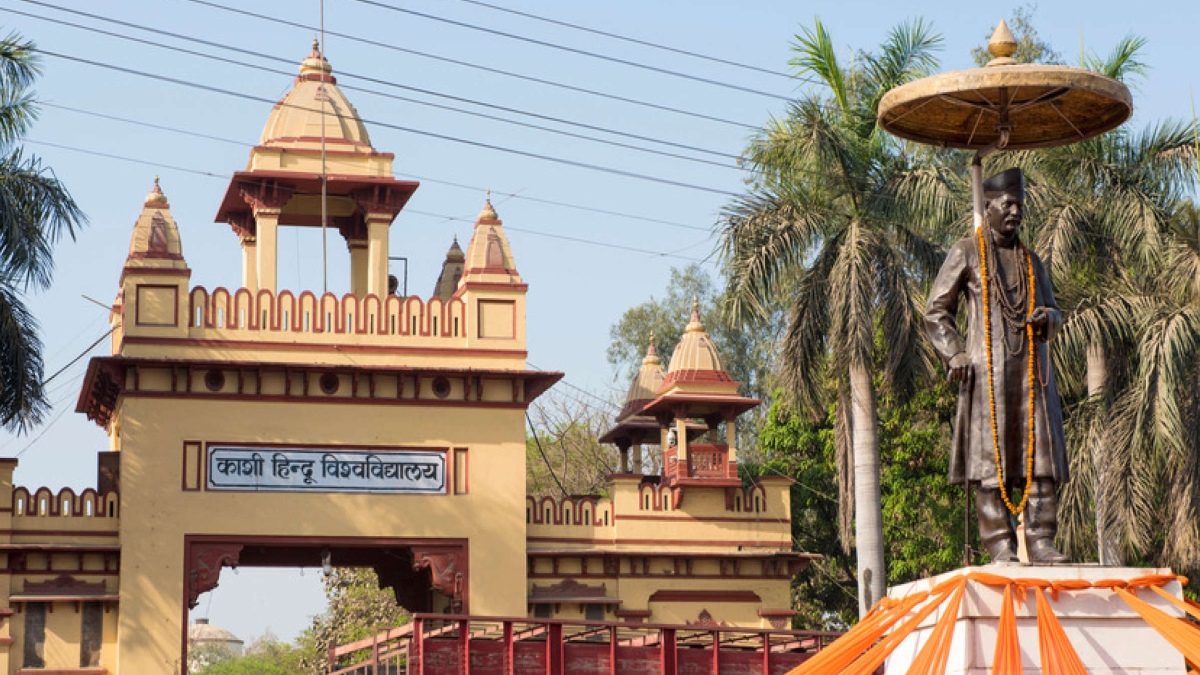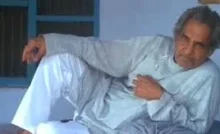There are five major social institutions in our society. The common aspect of them is that they have been the frequent subjects of debate. Interestingly, most of the time these debates turn into classic examples of hypocrisy. Sometimes they remain alive for a while and disappear like fairy tales. At times they are long-lasting but detrimental. Sometimes they take an ugly turn or even become preposterous. It is only in a few cases that they turn into successful and productive discourse. Clearly, public debates merit a higher level of discourse than the one that often closes them. One such event has unnecessarily created an embarrassing controversy on the campus of Banaras Hindu University (BHU) regarding the appointment of a visiting professor. Though the controversy seemed to have died down with the interventions of the authorities, the damage had already been done. It has incontestably reflected poorly on the governance of the university. Furthermore, it has pointlessly discredited the reputation of a person who has been indefatigably espousing the cause of sustainable development in the country.
Visiting professor is often regarded as a person of eminence in a particular domain of experience. Universities have a long-established tradition of inviting visiting professors for a limited period which at times may be extended as per mutual convenience. In most cases, it is not a salaried position. Visiting professors can be people from all walks of life. The idea of having visiting professors in the university system is to bring eminent people on a common platform for the advancement of knowledge. They are expected to participate in a variety of activities, depending upon their expertise, which may include giving guest lectures, formal lectures, seminars, discussions on contemporary issues with students, training in sports, arts, dance, dramas, skilling, collaborative research, etc. Such professors are not required to participate in any administrative responsibility in the university.
The position of the visiting professor can also be given to a person who is not holding proper academic degrees typically necessary for becoming a professor. There are umpteen instances in the academic world where universities offer the position of visiting professors to notable philanthropists, civil servants, artists, athletes, social workers, etc. In fact, the basic purpose of inviting a visiting professor is manifold. While some such professors can help raise the standards of teaching and research, there are others who can help university in a number of different ways from national and international projection to mobilisation of additional resources through research grants, endowments and donations. In either case, the visiting professor is an asset and not a drain on a university’s resources.
The news about the appointment of an accomplished classical Bharatanatyam danseuse and a corporate philanthropist as a visiting professor at Banaras Hindu University (BHU) aroused much controversy amongst the students. It is understood that the Centre for Women’s Studies & Development (CWSD) of the BHU seemed to have sent an invite to Nita Ambani to join as a visiting professor on 12 March this year. The Centre had perhaps realised that her association would help it push forward its programmes on women’s empowerment, quickly and forcibly. As soon as the news of the offer of her appointment broke out on the campus, the students imprudently sat on a dharna outside the residence of the Vice-Chancellor and demanded an immediate withdrawal of the offer. It is understood that the protest continued for a while until students received some kind of an assurance from the Vice-Chancellor to resolve the issue.
It is believed that the decision of sending the invite was the handiwork of an individual member of the faculty. The person might have acted in good faith but committed procedural mistakes, causing unnecessary embarrassment to both the university and the person. It looked as if it was done without the approval of the statutory bodies of the university. Consequently, the Public Relation Officer of the university had to issue a press release on 17 March due to an inevitable backlash. It clarified that the university administration had neither taken any such decision, nor issued any offer of appointment. It further clarified that such appointments are made with the explicit concurrence of the Academic Council (AC) of the university and that no such proposal has ever been brought before the Council. The other side also had to issue a clarification that no such proposal or invitation from the university had been received.
It looked like a pointless mess caused due to an overenthusiasm on the part of the faculty on the one hand and procedural carelessness on the other. Either way, the damage has been pretty profound, far more to university than to person. It has reflected how narrow our level of public discourse has become on the campuses of our premier universities. It also shows how the good ideas can be dismissed out of hands even in an enlightened society.
Universities need to explore ideas that are creative and unusual and are not controlled by rigid rules and regulations. They have to learn the art of thinking outside the box. We need to recognise the potential of a large talent pool that is available outside the university system and which can be roped in at a zero-cost. It could be eminent people from all walks of life. They may be philanthropists, civil servants, justices, advocates, public representatives, athletes, sportsperson, social activists, etc. All of them may not be able to do justice with the transaction of structured curriculum, but they can surely help university in a variety of ways. They can help mobilise resources through donations and endowments, forge linkages with industry, provide academic inputs based on their experiences for curricular reforms, give guest lectures in specialised areas, contribute to occasional seminars, participate in expert workshops, hold group discussions with students, provide training to students in fine arts, music, dance, etc. It becomes all the more necessary for the universities to tap this talent pool at a time when our university system is suffering from an acute shortage of both talent and resources. Such practices are quite common all over the world.
The most premier institutions of the world have a common practice of bringing philanthropists, policymakers, practitioners and activists together on the same platform for the advancement of knowledge. The number of visiting professors may vary from university to university at any given time. It is evident from the fact that celebrities like Hollywood actress Angelina Jolie, former British Foreign Secretary William Hague, Jane Connors of Amnesty International, Geneva, and Madeleine Rees, Secretary General of the Women’s International League for Peace and Freedom, all were appointed as visiting professors by the London School of Economics at its Centre for Women, Peace and Security at one point in time. There are numerous universities across the world which have strong traditions of inviting accomplished professionals as visiting professors. Such eminent professionals are free to involve themselves in multifarious activities of the university and help the host institutions develop strategies to achieve excellence in respective domains of their specialisation.
Indian universities should make concerted efforts to identify eminent professionals from all walks of life and make the most out of that resource to optimise their academic performance. It is, therefore, imperative that universities should bring in veteran policymakers, industry leaders, philanthropists, practitioners, civil servants, social activists, etc, on a common platform not only to reduce the existing gaps between what they offer and what the modern society needs but also to provide futuristic orientation to their programmes. Their life-long experience would surely prove to be a meaningful input for the universities to forge strong linkages with significant sectors of economy that are terribly missing. Besides, they should create proper awareness amongst their constituents about the significance of such initiatives and evolve appropriate strategies for their operationalisation to avoid slip ups which at times may cost the university dearly.
Thus universities should ensure that reforms such as these do not hit the wall mid-way due to ignorance of some inexperienced members, as it has happened at BHU. Had the benefits of the proposal been properly explained to the students, the embarrassing controversy would not have arisen. In fact, these are process-oriented reforms which can be initiated with proper in-house preparations regardless of the scale of support and encouragement from outside agencies as they offer big-time benefits at zero-cost. However, their execution should be carried out in conformity with the provisions of the statutes and ordinances since it involves as much the prestige of the university as the dignity of the person. One mishap about the appointment of a visiting professor on the campus of a premier university is bad enough. But when we make a mistake, we better learn from it and not repeat it.
The writer is former chairman, UGC. The views expressed are personal.
Universities need to explore ideas that are creative and unusual and are not controlled by rigid rules and regulations. They have to learn the art of thinking outside the box. We need to recognise the potential of a large talent pool that is available outside the university system and which can be roped in at a zero-cost. It could be eminent people from all walks of life.










